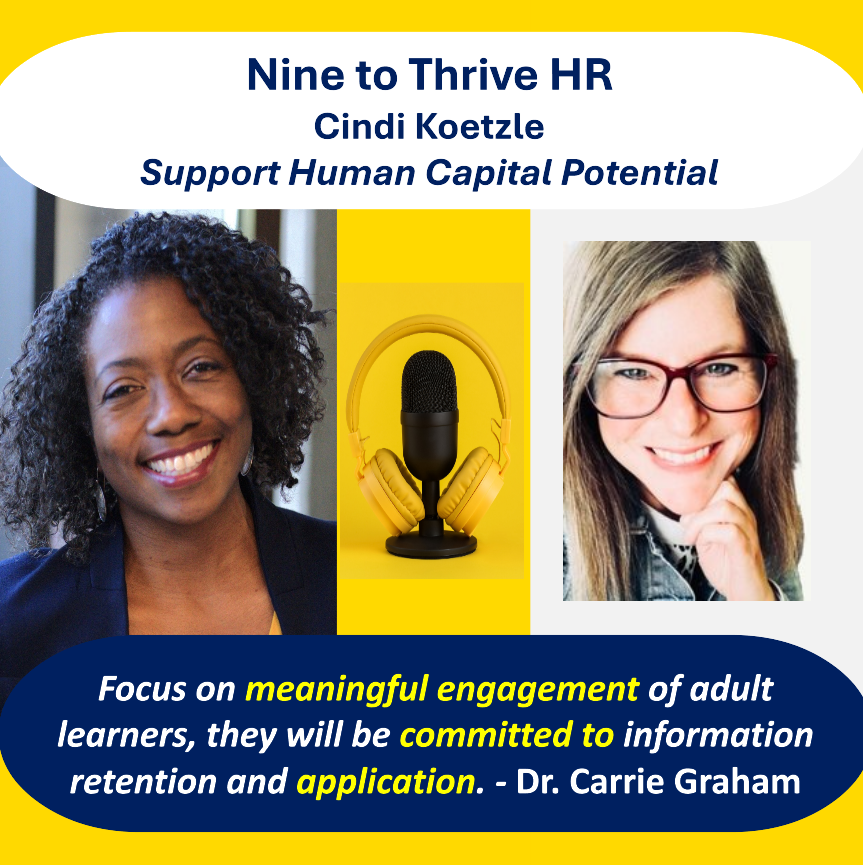
In this episode of Nine to Thrive HR, host Cindy Kettle interviews Dr. Carrie Graham about her journey from sports medicine healthcare provider to adult learning strategist and training consultant. Dr. Graham shares her transformational moment when she witnessed 200 employees sleeping, chatting, and playing games during mandatory sexual harassment training while their institution was simultaneously facing public litigation for the same issue. This experience, combined with years of ineffective continuing education conferences, motivated her to pursue a PhD in adult learning and workplace learning. The conversation explores the fundamental differences between teaching children (pedagogy) and adults (andragogy), emphasizing that adults bring rich life experiences that must be acknowledged and leveraged in training programs. Dr. Graham advocates for building on existing training foundations rather than constantly creating new programs, highlighting how this approach reduces stress while improving outcomes. She discusses her breakthrough methodology of helping clients identify their natural facilitation strengths rather than forcing them to develop entirely new skill sets. The episode covers the importance of embedding learning into daily work rather than treating it as separate from job responsibilities, and how strategic approaches to professional development plans can improve employee engagement, retention, and organizational culture. Dr. Graham emphasizes that effective training and development focuses on engagement, retention, and application, ultimately empowering employees through meaningful learning experiences that align with organizational values.
Listen Here > https://podcasts.apple.com/us/podcast/adult-learning-to-support-human-capital-potential
Dr. Graham emphasizes that effective training and development must be grounded in adult learning theory, recognizing that adults bring valuable life experiences that should be leveraged rather than ignored in learning programs. She advocates for strategic approaches that build on existing foundations rather than constantly creating new programs, focusing on engagement, retention, and practical application to truly empower employees and achieve organizational goals.
Listen Here > https://podcasts.apple.com/us/podcast/adult-learning-to-support-human-capital-potential
Read > Human Side of Change: Employee Change Readiness
Subscribe > C.A.L.M. Email for weekly industry insights
Get practical tools, strategies, and resources to design and deliver impactful training programs — right in your inbox.